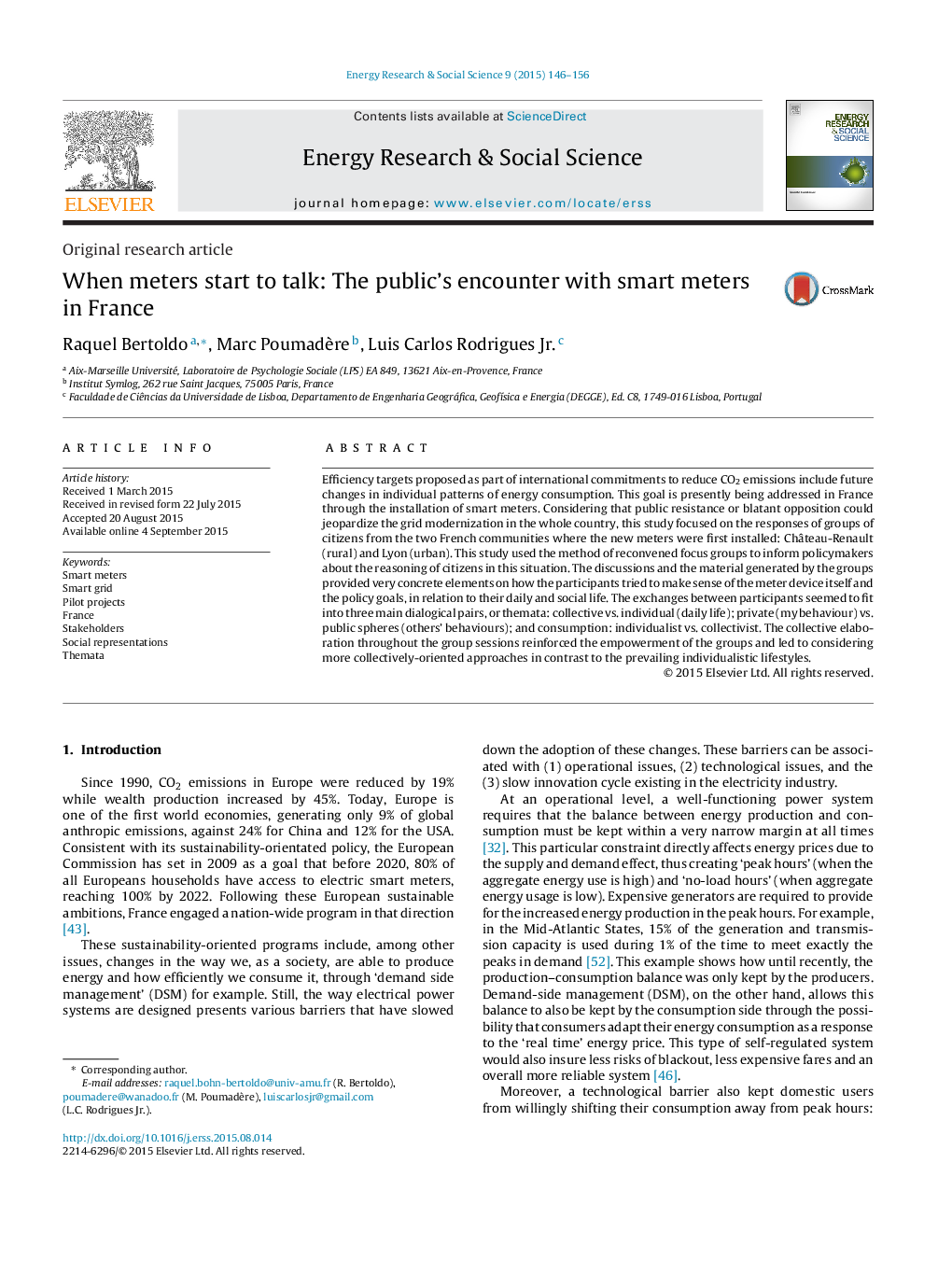| Article ID | Journal | Published Year | Pages | File Type |
|---|---|---|---|---|
| 6558669 | Energy Research & Social Science | 2015 | 11 Pages |
Abstract
Efficiency targets proposed as part of international commitments to reduce CO2 emissions include future changes in individual patterns of energy consumption. This goal is presently being addressed in France through the installation of smart meters. Considering that public resistance or blatant opposition could jeopardize the grid modernization in the whole country, this study focused on the responses of groups of citizens from the two French communities where the new meters were first installed: Château-Renault (rural) and Lyon (urban). This study used the method of reconvened focus groups to inform policymakers about the reasoning of citizens in this situation. The discussions and the material generated by the groups provided very concrete elements on how the participants tried to make sense of the meter device itself and the policy goals, in relation to their daily and social life. The exchanges between participants seemed to fit into three main dialogical pairs, or themata: collective vs. individual (daily life); private (my behaviour) vs. public spheres (others' behaviours); and consumption: individualist vs. collectivist. The collective elaboration throughout the group sessions reinforced the empowerment of the groups and led to considering more collectively-oriented approaches in contrast to the prevailing individualistic lifestyles.
Related Topics
Physical Sciences and Engineering
Energy
Energy (General)
Authors
Raquel Bertoldo, Marc Poumadère, Luis Carlos Rodrigues Jr.,
